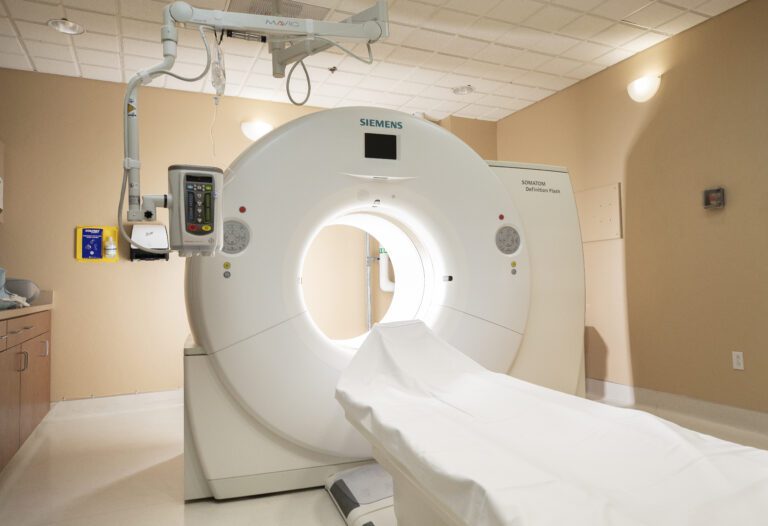No special preparations are necessary.
After you arrive for your appointment, you will be escorted to a procedure room, where you will be asked to change into a patient gown. You should remove all jewelry and other removable items such as glasses, dentures, and hearing aids. Women should always inform their technologist if there is any possibility of pregnancy.
During the exam you will lie on a table that moves into the doughnut-shaped scanner. Electrodes (small metal discs) will be attached to your chest and to an electrocardiograph (ECG) machine, which makes it possible to obtain the CT images when the heart is not actively contracting. Your technologist will watch you through an observation window and will be able to communicate with you at all times. CT scans are non-invasive and painless, though you will hear humming, buzzing, or clicking sounds as the CT machine moves to position you. It is very important to follow all instructions and remain still during scanning in order to obtain clear images. The scan is usually completed within 10 minutes. After the exam, you can return to your normal activities.
For your safety and the protection of others, we do not allow anyone other than patients in our exam rooms.
After your study, the images will be evaluated by one of our board-certified radiologists with expertise in cardiac imaging. A final report will be sent to your doctor or healthcare provider, who can then discuss the results with you in detail.
Reports are also available on the MyRad Patient Portal


